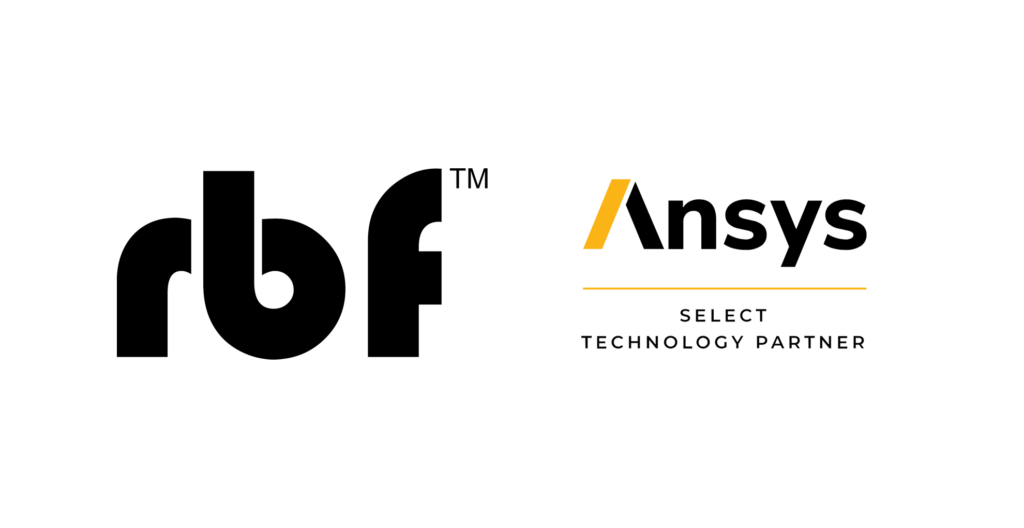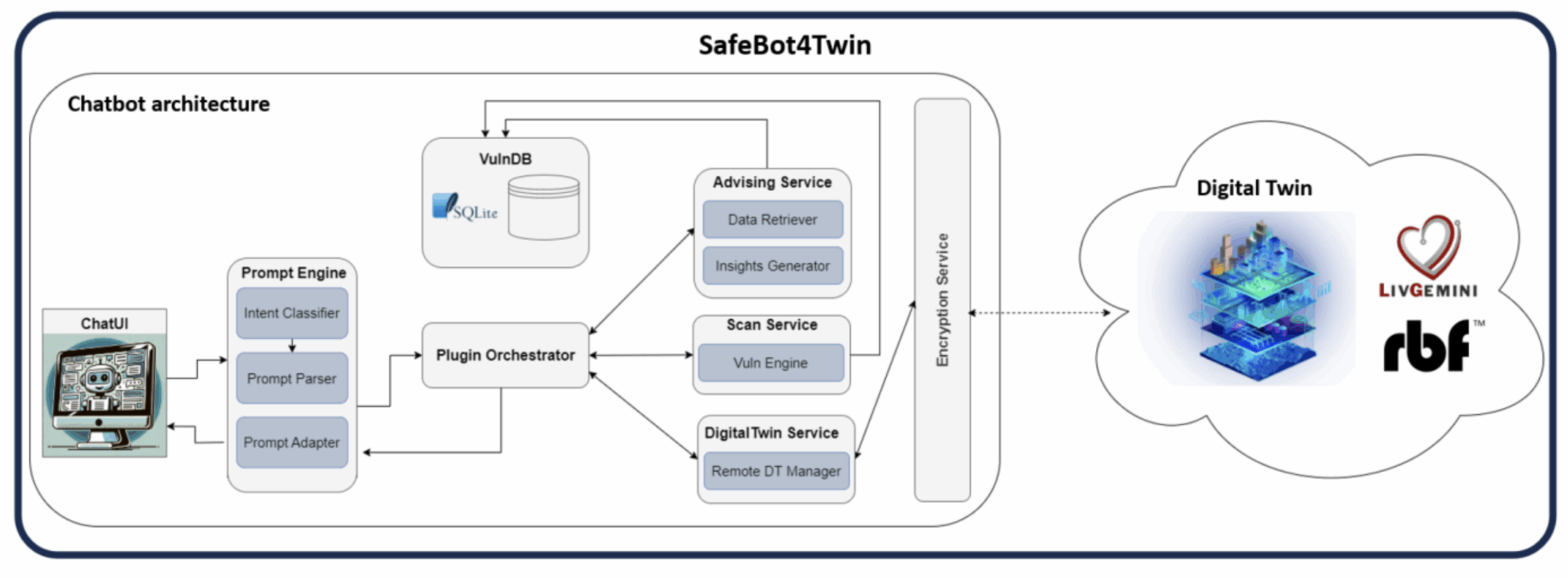SafeBot4Twin is an EU-funded project by the Cyber 4.0 competence center, uniting RBF Morph and MedTech startup LivGemini to develop a secure chatbot powered by Large Language Models (LLMs) for managing medical digital twins. These twins rely on sensitive clinical data, increasingly targeted by cyberattacks. The project addresses the need for intuitive, secure tools that help non-experts manage encryption, access control, and vulnerability assessments, reducing the risk of human error.
The core innovation is a conversational interface that translates clinical inputs into FMU parameters while enforcing cybersecurity policies. Features include regular vulnerability scans, natural language remediation, proactive alerts, and coaching on cyber hygiene. Data is secured via TLS 1.3, OAuth 2.0 / OpenID Connect, and AES-256/RSA-2048 encryption. Its modular architecture separates the chatbot UI from core security components, ensuring flexibility and scalability across medical applications.
Launching at TRL 5, SafeBot4Twin aims to reach TRL 7 in 12 months, with pilots on airways and thoracic aorta models at Policlinico Tor Vergata. The final demonstrator will validate secure, low-latency data exchange and the elimination of all detected vulnerabilities.
The project delivers three key innovations: secure, conversational access to digital twins for non-technical users; active, ML-based cybersecurity guidance; and an open, extensible plug-in system. Expected benefits include reduced breach-related costs, faster in-silico drug testing, and improved surgical planning. Post-project, RBF Morph targets pharma licensing, while LivGemini will pursue CE certification for its cardiovascular software, aiming for 16 clients and €2M in revenue by 2029.



